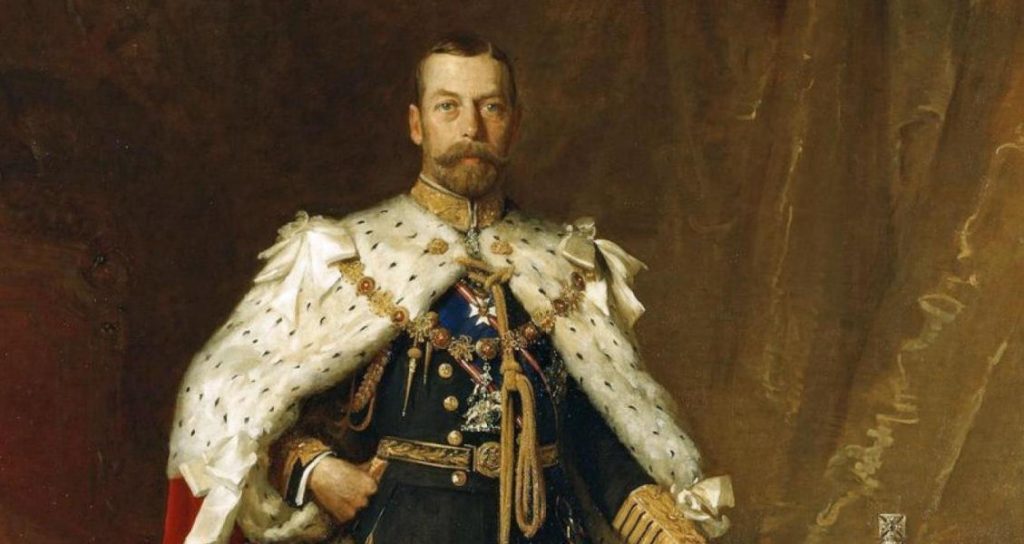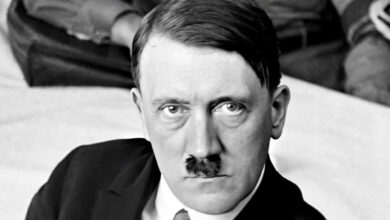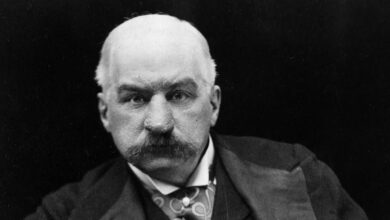
Podcast: Play in new window | Download
Subscribe: Spotify | Amazon Music | Youtube Music | RSS
King George V is an important monarch in the history of the United Kingdom, he oversaw its largest territorial expanse but was also the King who witnessed what would ultimately become the downfall of the British Empire, the independence movement.
George Frederick Ernest Albert was born on 3 June 1865. He was the second son of Prince Albert Edward, the eldest son of Queen Victoria, and the man who would become Edward VII, his elder brother Prince Albert Victor having been born in January the previous year, meaning that he was third in line to the British throne. Since George was not expected to become king, he followed his father’s wishes and joined the Royal Navy in September 1877, with his father remarking that the Navy was the very best possible training for any boy.
During his time with the Royal Navy, George, along with his elder brother, who was affectionately known as Prince Eddy, was able to travel the world and got to see Great Britain’s colonies and territorial possessions, and in doing so, began to fathom the size of the empire that his brother would one day inherit.
However, this was not to be, as tragedy struck the Royal family, when, just a few weeks after his surprise proposal of marriage to Princess Mary of Teck, George’s brother, Prince Eddy became ill with influenza during the pandemic of 1889-92. He developed pneumonia and died on 14 January 1892.
This significantly changed the trajectory of George’s life as he was now in the direct line of succession to the British throne behind his father and was created Duke of York by Queen Victoria on 24 May 1892. He spent a considerable amount of time comforting his brother’s former fiancée who was known as May within the family, and the two grew surprisingly close. Consequently, with the full support of the rest of the royal family, the couple ended up marrying on 6 July 1893.
The happy couple travelled the world and after the death of Queen Victoria on 22 January 1901, and the crowning of his father as Edward VII on 9 August the following year, George became next in line to the throne and immediately inherited the title of Duke of Cornwall. For a while, he was known as the Duke of Cornwall and York but his father, the King created him Prince of Wales and Earl of Chester on 9 November 1901 to begin the preparations for him to one day become king himself.
During the early years of the 20th century, George toured British-controlled India. It was while there that he saw how rampant discrimination was against the local Indian people. He became a strong advocate for ending this behaviour and championed the cause for ensuring that Indian people had more involvement in governing their own country.
Unfortunately, George wasn’t able to continue in his duties as Prince of Wales for very long as on 6 May 1910, his father, King Edward VII died. At that point, George became king and was officially crowned as King George V on 22 June 1911.
The early reign of King George V was mired in national politics as the House of Commons sought to curtail the political power of the unelected House of Lords which had rejected the ‘People’s Budget’ in 1909, resulting in elections being held the following year to get the budget through. King George V gave Royal assent to The Parliament Act on 18 August 1911 which removed The House of Lords’ right to veto many kinds of bills, including budgetary ones.
National politics was set aside for a while though a few years later with assassination of Archduke Franz Ferdinand on 28 June 1914 and the outbreak of the First World War. King George V is said to have hoped to God that it may all be over soon, but the Great War as it became known was not swiftly won and dragged on for 4 years. The fact that the German Emperor Kaiser Wilhelm II was the King’s first cousin did not help matters at home and in fact, there was strong public opinion about the fact that the Royal Family was too close to the Germans. It didn’t help that the family name itself was indeed derived from territories within a duchy ruled by a branch of the House of Wettin in Germany. This led King George V to take the extraordinary decision to change the name of the Royal House from the House of Saxe-Coburg and Gotha to the House of Windsor, which it remains to this day.
The first World War radically reshaped a large portion of the world. Whereas most of Europe still had ruling monarchs, many of whom were related to each other at the start of the war, this came crashing down by the time the war ended in 1918, with the end of the monarchies in Greece, Austria, Spain, Germany, and others the European map was redrawn, leading to an upswelling of various kinds of different governments including democracies, communist rule, socialism and republicanism. However, after the collapse of Germany, Britain sought to take control of much of what had been her former colonial empire, resulting in King George V being at the head of a British empire that was the largest it would ever be by 1921.
Following the end of the First World War though, there was still political turmoil to address closer to home between Britain and Ireland with renewed efforts by Irish nationalists to gain independence and when the King found out about government-sanctioned killings, he expressed his horror to the Prime Minister, David Lloyd George. The King appealed for conciliation when the Parliament of Northern Ireland opened on 22 June 1921. A few weeks later, a truce was agreed which led to the signing of the Anglo-Irish Treaty.
In 1924, King George V also saw the very first labour government take office under Ramsay MacDonald, even though he had failed to win the general election the previous year. The number of seats that he had won resulted in a hung parliament leaving the conservative Stanley Baldwin as an impotent Prime Minister. Reluctantly, Baldwin advised the King to call for MacDonald who took office as the first Labour Prime Minister on 22 January.
King George V’s final and probably most significant act was to give Royal assent to the Statute of Westminster in 1931 which established independence in law for the self-governing parts of the British Empire from the UK thus establishing what became known as the British Commonwealth of Nations.
The War had a significant impact on George V’s health, especially after he was injured after being thrown from his horse during a troop review in France in 1915. This coupled with his heavy smoking habit meant that he continually suffered from chronic bronchitis and at the behest of his doctors, in 1925, he went on a Mediterranean cruise to recuperate.
Three years later, on 28 November 1928, he fell ill with septicemia, turning over many of his official duties to his son for the next two years.
On the evening of 15 January 1936, King George V complained that he had a cold, and went to bed. He died at 11.55 pm on 20 January at the age of 70.
Podcast: Play in new window | Download
Subscribe: Spotify | Amazon Music | Youtube Music | RSS




